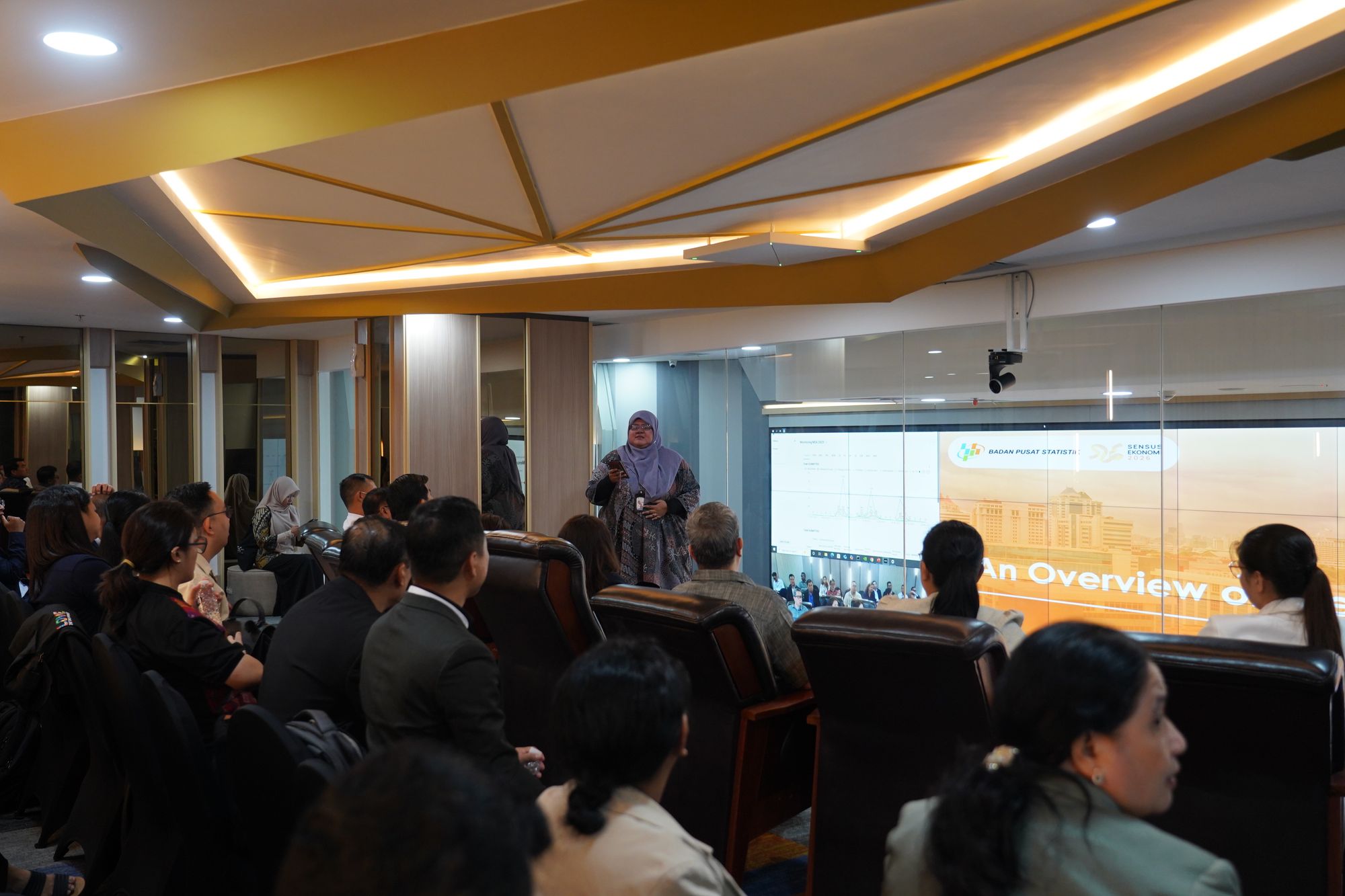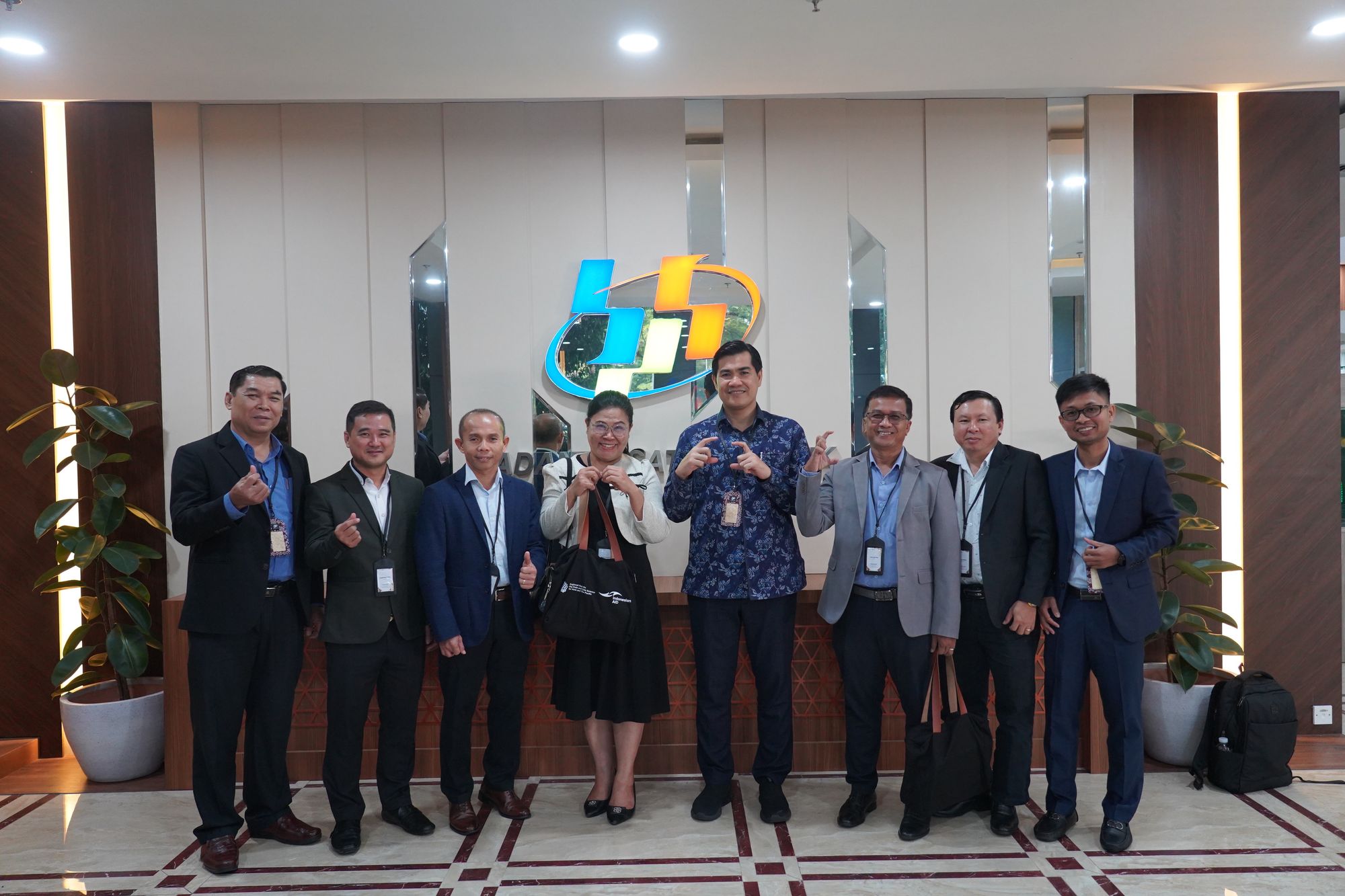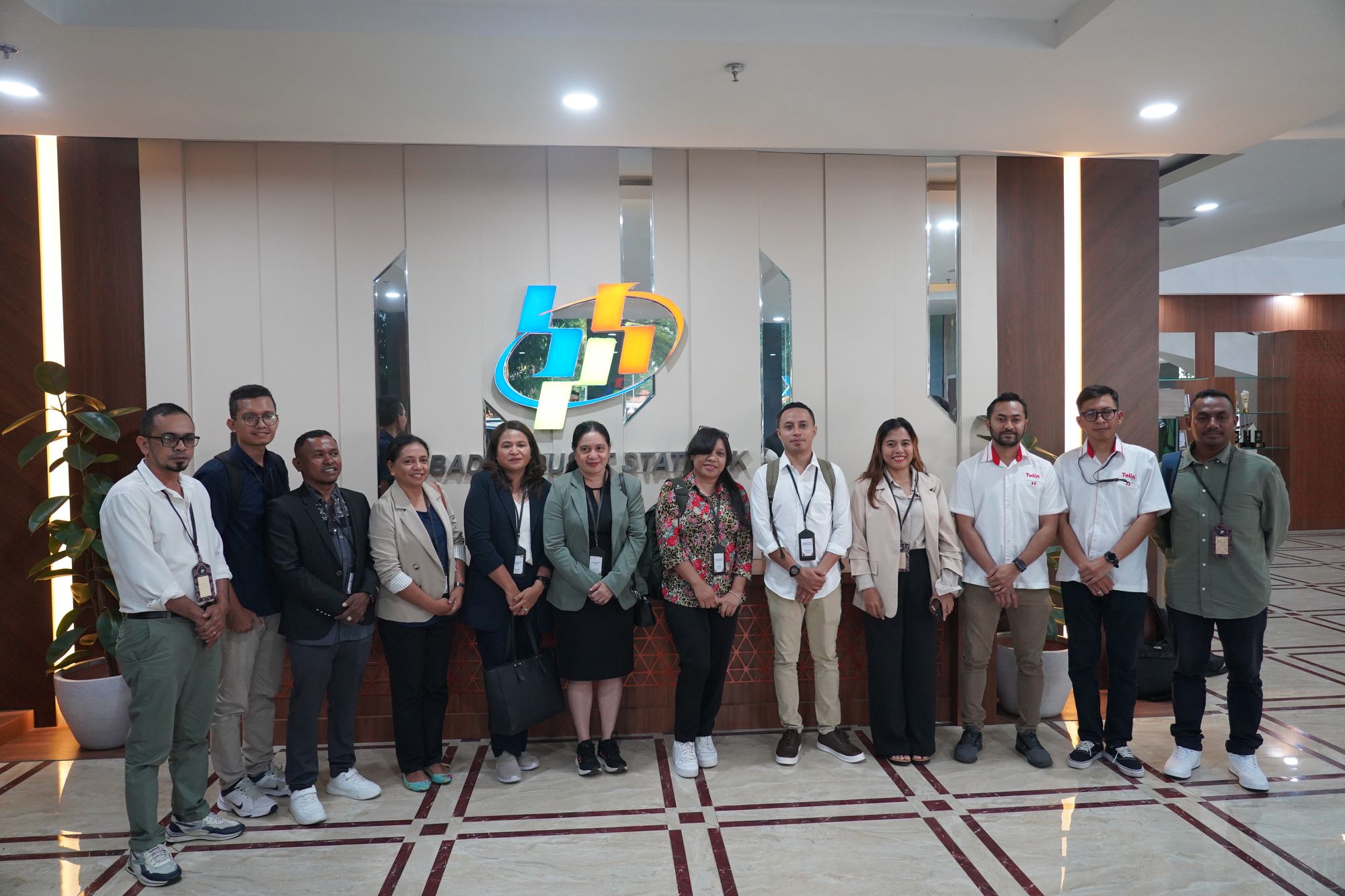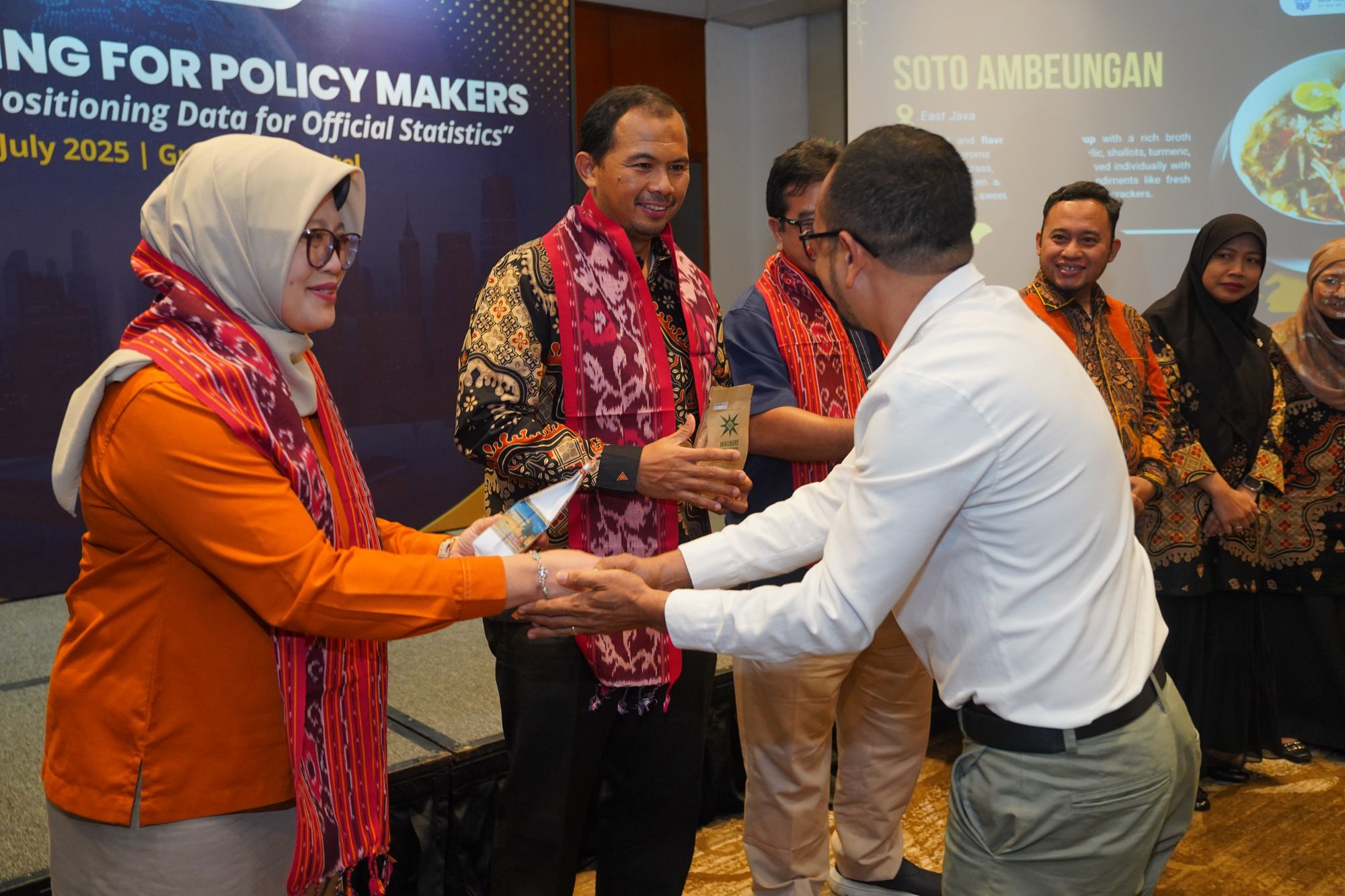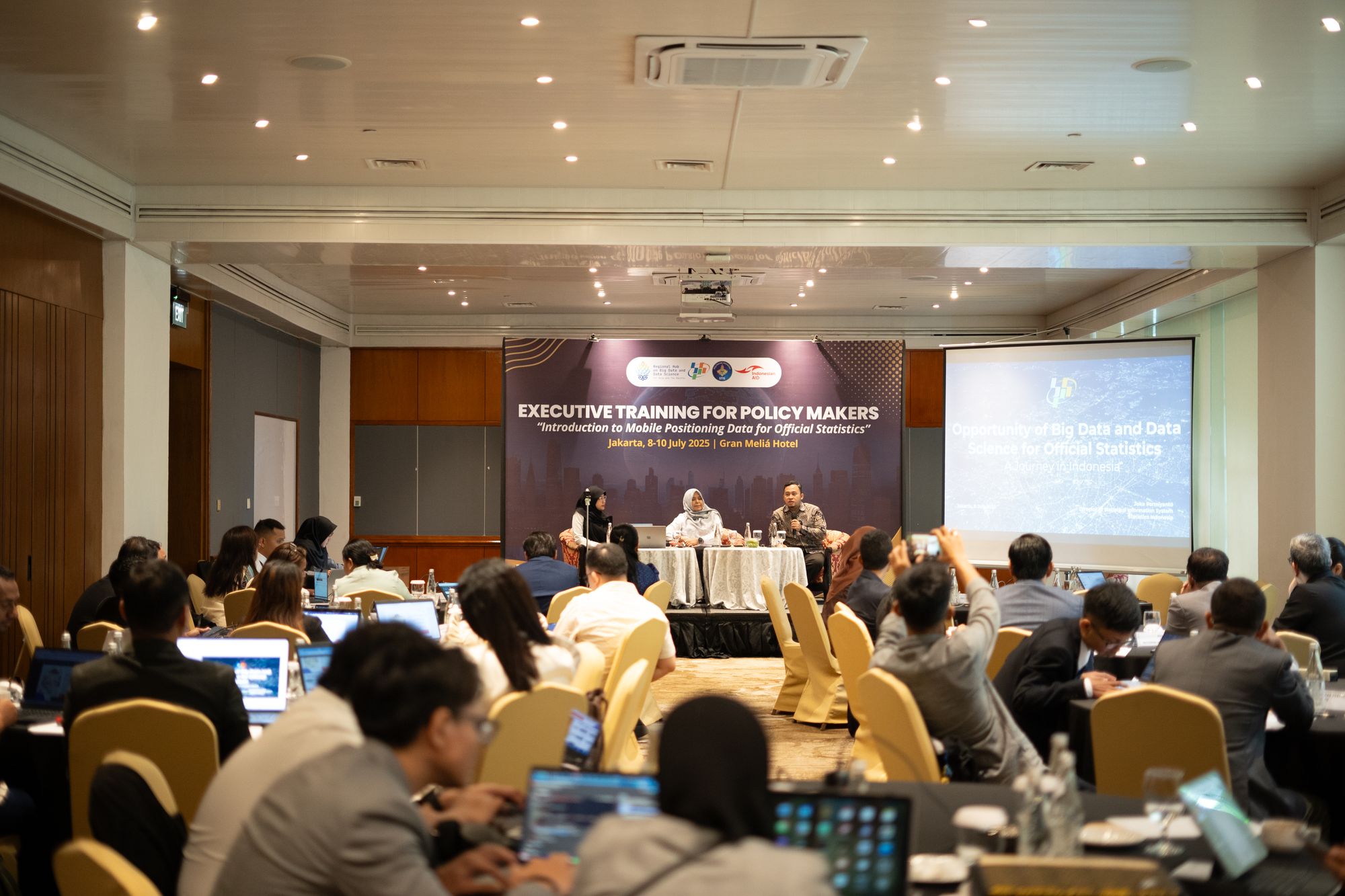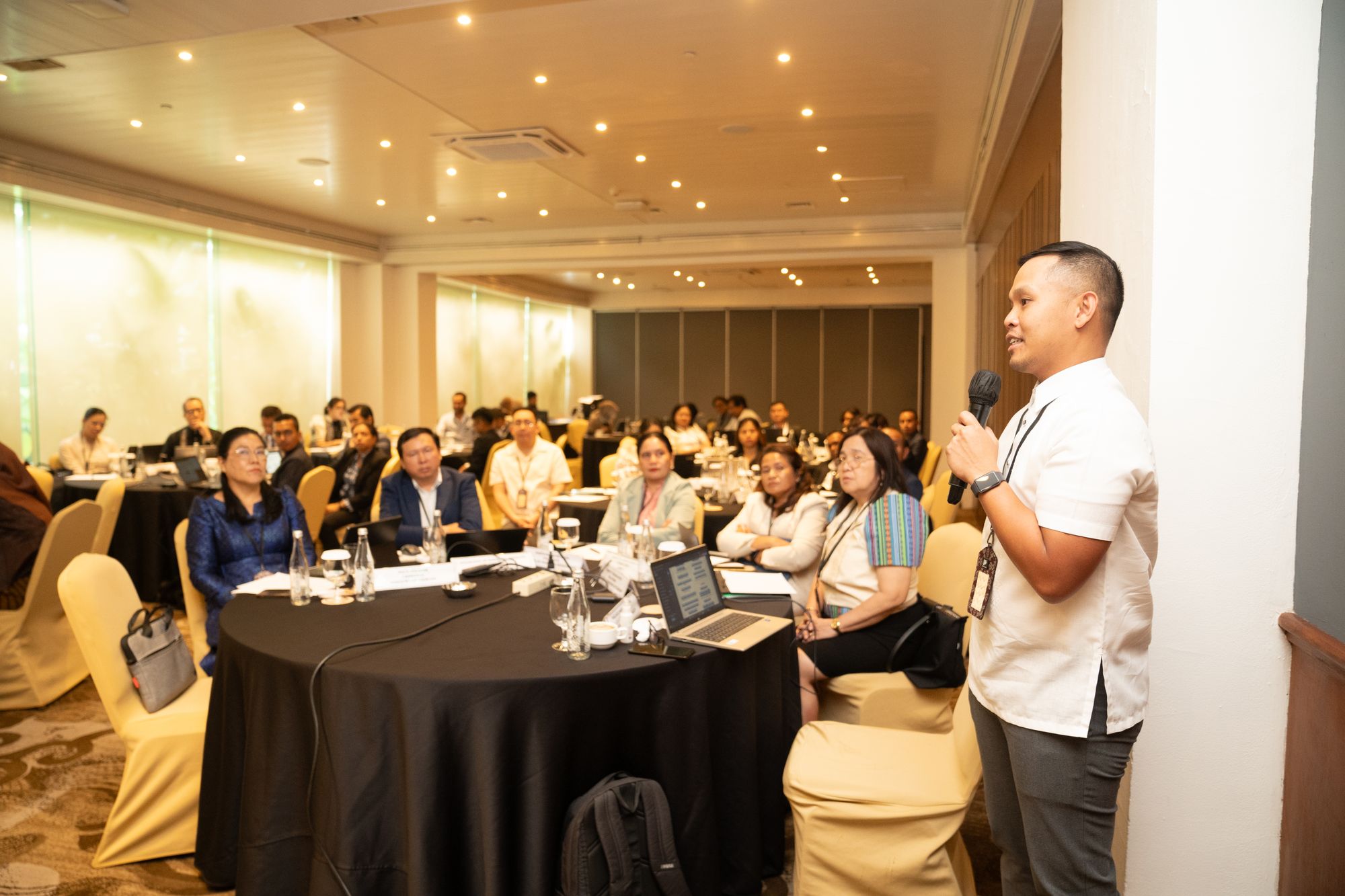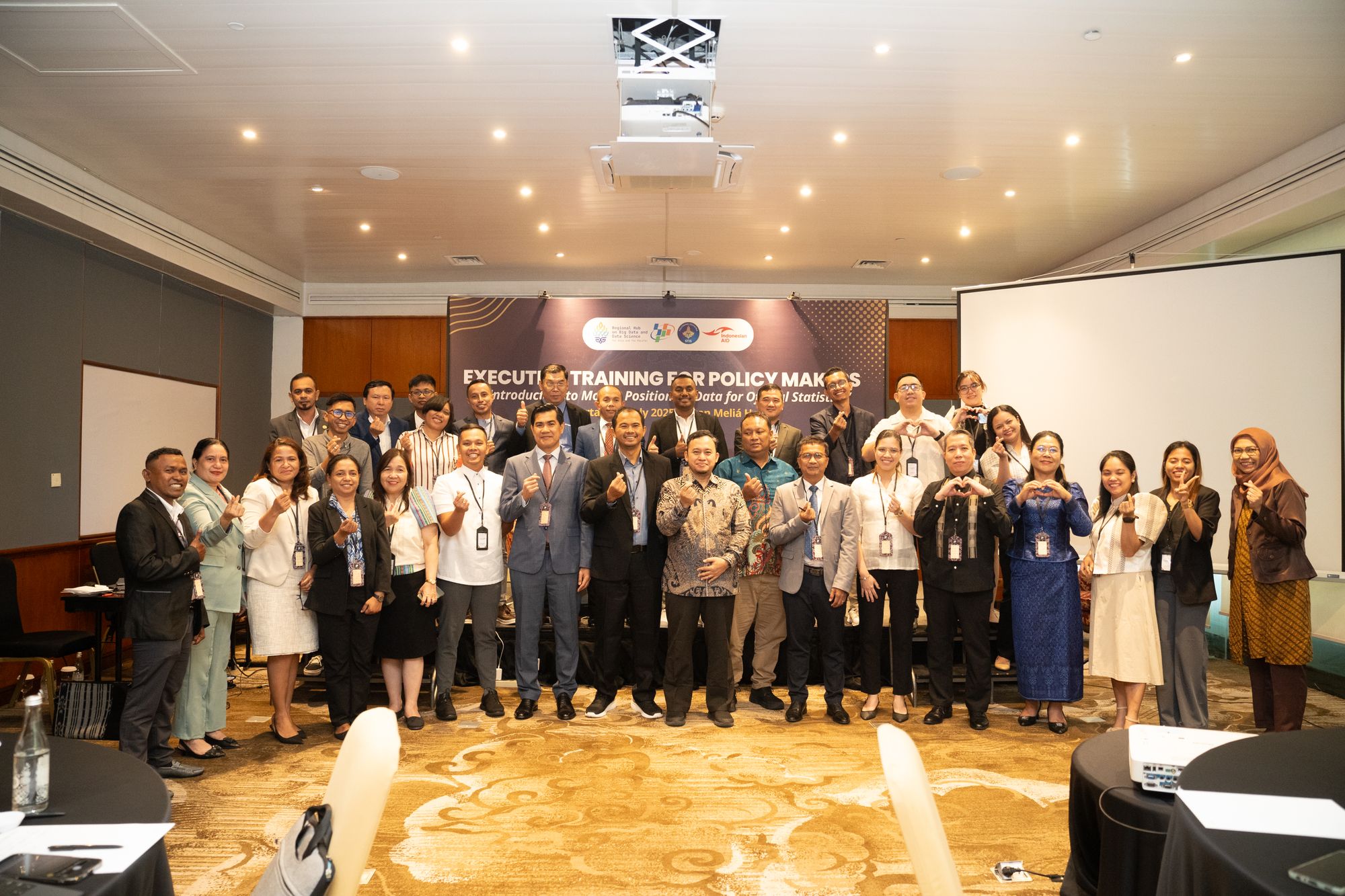Jakarta, July 9, 2025 – In the era of rapid digital transformation, the need for new, faster, more accurate, and relevant data sources has become increasingly vital for evidence-based decision-making. Recognizing this urgency, the Regional Hub on Big Data and Data Science for Asia and the Pacific held an Executive Training on Mobile Positioning Data (MPD) for Official Statistics from July 8-10, 2025, at the Gran Melia Hotel Jakarta.
The event was opened by Acting Chief Secretary Edy Mahmud and UN Resident Coordinator in Indonesia Gita Sabharwal, followed by a keynote speech delivered by Acting Deputy for Statistical Methodology and Information Pudji Ismartini. This activity is part of an initiative to strengthen the capacity of countries in the Asia and Pacific region to adopt new approaches in official statistics through the utilization of big data. The training was attended by stakeholders from diverse backgrounds, including representatives from National Statistical Offices (NSOs), ministries of tourism, and Mobile Network Operators (MNOs) from the Philippines, Cambodia, and Timor-Leste.
Understanding Mobile Positioning Data (MPD)
During the first two days, panel sessions featured speakers from Indonesian mobile operators, government agencies, and data governance experts. The main focus of the training was Mobile Positioning Data (MPD)—a form of big data generated from interactions between mobile devices and cellular network infrastructure, such as signals during calls, message sending, or internet usage. MPD has a unique advantage as it can capture human mobility in space and time with high precision, making it a potential data source for various statistical indicators, especially in the tourism, transportation, and population mobility sectors.
In Indonesia, the utilization of MPD has shown tangible results. Through collaboration between BPS-Statistics Indonesia and cellular network providers, Indonesia has successfully leveraged MPD to enrich tourism statistics, such as calculating foreign and domestic tourist visits in a more real-time manner. This best practice was shared with participating countries to encourage replication and adaptation in their respective nations.
The discussions explored various important dimensions in MPD utilization, from technical aspects like data architecture and anonymized user data processing, to governance issues such as privacy, personal data protection regulations, and the crucial role of national regulations in facilitating cooperation between the public and private sectors. Speakers also emphasized that the use of MPD for official statistics can only be optimal if there is clear role definition, transparent mechanisms, and strong ethical principles.
Addressing Challenges and Building Capacity
Participants enthusiastically shared their views and questions regarding similar challenges in their own countries, such as technical capacity limitations, the absence of specific regulations, or communication gaps between NSOs and MNOs. These discussions served as a platform for exchanging ideas, fostering a shared understanding of the importance of building an inclusive, secure, and sustainable data ecosystem.
The training did not stop at a conceptual level. As a concrete step to strengthen technical capacity, participants from each country will be invited to attend a Short Course on MPD Processing and Analytics to be held in September 2025 in Bali. This intensive training program will equip participants with practical skills, ranging from cleaning and processing raw MPD data to visualization techniques and integration into national official statistical frameworks.
Real-World Implementation and Future Collaborations
To provide a direct overview of MPD implementation in government practice, the training concluded with field visits to two important locations: BPS-Statistics Indonesia and the Telkomsel Command Center. At BPS, participants observed firsthand how MPD data is processed and used to compile tourism and mobility statistics. At Telkomsel, participants received an in-depth explanation of data infrastructure, anonymous data aggregation methods, and data security and ethics procedures.
These visits served as cross-sectoral learning opportunities, reinforcing the importance of long-term partnerships between statistical agencies and cellular operators. From the government's side, technical understanding and adaptive policies are needed, while from the industry's side, a commitment to transparency, compliance, and openness is required to support national development goals.
Towards a Data-Driven Asia-Pacific
Through this series of training activities, it is hoped that collective awareness will be built across the Asia-Pacific region regarding the importance of transforming national statistical systems through the utilization of non-traditional data. MPD serves as a concrete example of how big data, initially used for commercial needs, can hold significant value in supporting data-driven development and public policy.
More than just a transfer of knowledge, this training serves as a foundational step for the formation of a strong, inclusive, and ethical cross-country and cross-sector collaborative ecosystem. With a spirit of sharing best practices and building trust, the Asia and Pacific region can collectively address data challenges in the digital era, moving towards official statistics that are more adaptive, responsive, and relevant to society.
Materials
Activity materials can be downloaded here:
Documentations
